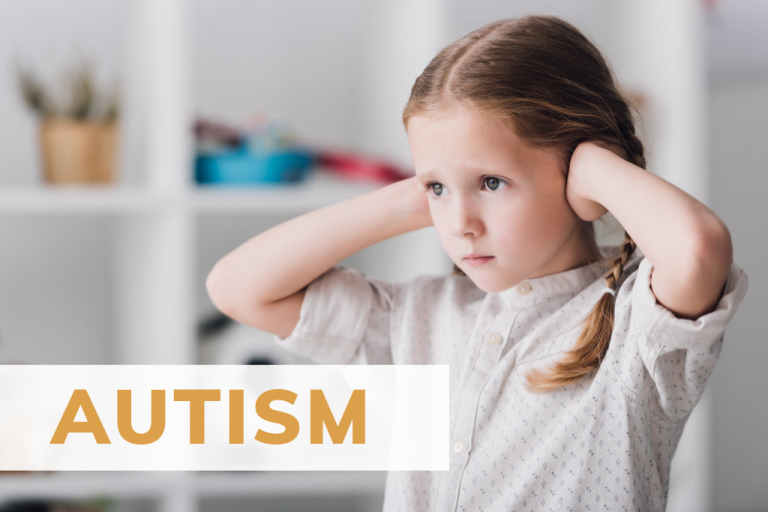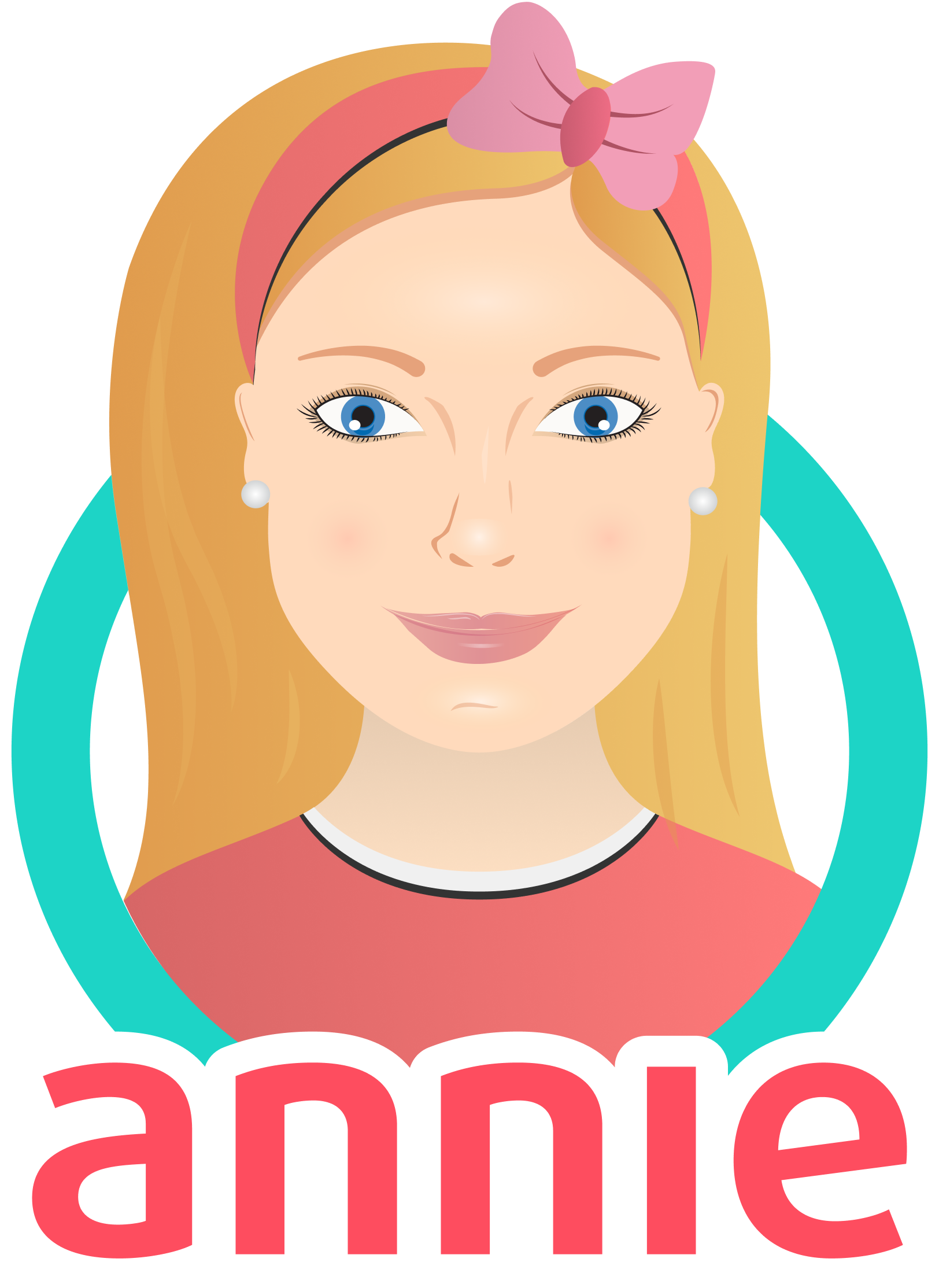
Autism in Kids: Common Symptoms and How to Deal with Them
- Created:
29. 5. 2017 - Updated:
29. 1. 2024
Autism in kids in on the rise. And we, as a society are slowly learning what exactly it means and how to approach this condition.
What should you do if you suspect your kid might have autism?
You may feel heartbroken. That’s completely okay. You can be relieved that you finally know what’s going on. Most likely, it will be a mix of these two feelings. They might be often accompanied by a feeling of guilt and a whole lot number of questions. Let’s try to quench that question thirst and provide you with some answers and advice on how to deal with autism in kids.
What is autism?
Let’s start from the beginning. What exactly is autism? Autism spectrum disorder (autism or ASD) is a developmental condition affecting the way people act, relate and interact with others while experiencing the world.
Autistic kids face difficulties with:
- █ social interactions,
- █ speech and communication,
- █ unusual “obsessive” behavior,
- █ reading non-verbal signals and more.
As the term „spectrum“ suggests, each person experiences a different variation of difficulties. Some people learn to deal with these symptoms on their own. They usually earn the label „socially awkward“, while others might need more professional help from experts.
Signs of autism in kids
Most telltale signs tend to appear between 2 and 3 years of age. In some cases, it can be diagnosed as early as 18 months.
All children learn at a different pace. So even if your kid shows a lack of social interaction you can never be sure on your own. There are certain signs to look for in younger children, but the diagnosis is better left to a professional.
We’ve compiled a list of signs you can look for if you suspect your kid might have autism.
Autism in baby
To pick up signs of autism in a baby you need to pay a lot of attention to its development and social interactions.
Babies at this age are very drawn to their primary caretakers. So there is no need to worry if your baby doesn’t want to spend time with others and even refuses to be held by other people. You spend the most time with your little one and you are the first person that can tell if something is not regular. Talk to your physician, if you have any doubts.
Some signs might include:
- █ doesn’t make any eye contact with you or close family
- █ seems to look right through you
- █ doesn’t show interest in faces and at looking at people
- █ doesn’t react to sounds and to his or her name (but otherwise hears fine)
- █ doesn’t like to be held or cuddled
- █ doesn’t show signs of talking (doesn’t babble)
Autism in 2 year old
The majority of autism signs start to show up when the kid is 2 years old. The symptoms can vary significantly. Diagnosing autism is based on a combination of symptoms that persist or get worse with time when left untreated. If you notice your child is showing one or more signs mentioned here, it’s always best to consult your doctor. Speech therapy for children can be a beneficial intervention to consider, as it can address communication delays and is often recommended for children showing signs of speech development issues. It may not be autism, but it’s crucial to determine the cause of any developmental problems. Especially, if your child doesn’t make eye contact or doesn’t show any signs of speech by the age of two.
Signs that your kid may be showing signs of autism:
- █ has a speech delay
- █ struggles to express wishes and needs
- █ doesn’t respond to his or her name
- █ is unable to follow clear directions
- █ may have sudden inappropriate outbursts of laughing, crying or screaming
- █ plays with toys in unusual ways
- █ doesn’t engage in playing pretend
- █ does not imitate or mimic what you do
- █ struggles to play and interact with other children
- █ prefers playing alone
- █ repeats actions over and over
- █ does not like to be touched
- █ gets agitated easily by noises, smells or foods
- █ has sleep disturbances
- █ has behavioral problems
- █ is uncooperative
- █ is overly active, impulsive or aggressive
Autism in 3-year-old
Most children diagnosed with autism are diagnosed before the age of 3, but there are still many cases not diagnosed until preschool or later.
These milder cases may lack the most dominant symptoms, but if you think your preschooler is displaying autism signs, get him or she screened. The sooner, the better – the sooner you can intervene means better chances at the outcome of the situation.
Watch for these symptoms of autism in kids:
- █ doesn’t like to play with other children
- █ doesn’t want to cuddle or hug you
- █ doesn’t show any emotional reactions toward you
- █ doesn’t speak
- █ has trouble expressing his needs and wants
- █ doesn’t make any eye contact
- █ is not paying attention
- █ is consumed in a world of his own
- █ insists on a rigid routine
How to diagnose autism in kids?
Unfortunately, there are no medical tests that can diagnose autism. Psychologists and trained physicians evaluate the child based on autism-specific behavioral evaluations.
You are the one who spends the most time with your kid and you should always follow your instincts if you have a feeling something’s off.
The doctors should watch for developmental milestones and unusual behavior during a regular medical checkup. Growth and the physical aspect of your baby are important factors as well. Doctors unfamiliar with autism diagnosis may dismiss your concerns. They could tell you your baby will eventually grow into the behavior.
But if you have a gut feeling, don’t hesitate to contact a specialized center that will refer you to the specialized doctors and therapists. Time is of the essence when it comes to an autism diagnosis.
A typical evaluation consists of a number of doctors (pediatrician, psychologist, language and speech specialist, and other therapists) as well as genetic testing and screenings for medical issues. This helps you to understand your child better and how to fulfill his needs.
An autism screener questionnaire can help you
There are certain tests and questionnaires you may take to help you decide whether to see your doctor about autism.
The Modified Checklist of Autism in Toddlers (M-CHAT) is a type of said questionnaire. It provides you with a list of questions about your child and the answers can tell you if you need to see a specialist such as a psychologist or a developmental pediatrician. This is also used as a screening tool by physicians among other tests.
Dealing with autism in kids
Dealing with autism can be stressful, especially when you’re new to the game. But there are a few basic points we can recommend you follow on a day to day basis.
It is important to not stress if you don’t get everything right on the first try. It’s a learning experience for everyone involved.
1. Provide your kid with structure and a safe zone
Be consistent in your requirements and teach your child the same structure in multiple environments. It’s also better to create and stick to a schedule that works for you and your child. Remember to reward good behavior. It doesn’t always have to be toys or sweets, rather something that motivates your child like a later bedtime, extra computer time. Also, use praise and explain exactly what it is you’re rewarding.
2. Find ways to communicate and connect with your kid
It is not unusual for an autistic kid to struggle with communication and talking in general. However, they will give you nonverbal clues expressing their needs and wants. As you are the person spending the most amount of time with them, you gain insight as to how they express emotions and other traits. Another important thing is to figure out why they choose to communicate in a certain way.
3. Make time for fun activities and playtime
We’ve talked about providing a structure and a safe zone for your child. That’s extremely important but don’t forget to make time for some fun time. Learn what they love best and include these activities in your fun time together. It’s a great way to bond and find common ground.
4. Get professional help and support
Creating a treatment plan modified to your child’s needs is vital. Every child is different and the scale of the autism spectrum disorder is very wide, so what works for one child will not work for another. Your pediatrician and other specialists will assist you in creating the perfect treatment plan for your child to suit their needs.
It will take into account strengths and weaknesses as well as what behaviors cause the most problems. It will also consider how he or she learns and communicates best and what activities and other things he or she enjoys most.
Also, there are numerous support groups throughout the country and the whole world for the matter. Join a community in person or on-line. We live in the information age and the age of social media and finding answers to various questions has never been easier. Even if you live in a small town, you can still connect through social media with other parents to share insight and knowledge.
Bonus tip: accept the situation
And the most important thing of all, accept your child for who they are. Your child is one of a kind, quirks and all. Practice acceptance rather than focus on the differences between other children and your „baby“. The easiest things said are usually the hardest done. But try to learn not to compare your child with others and try to focus on small successes and victories. All children deserve to feel loved unconditionally.






